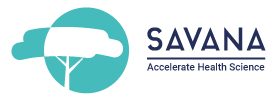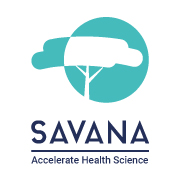The rise of real-world evidence: unlocking the potential in EHRs

The COVID-19 pandemic has demonstrated the importance of health data and how its availability in real time can reveal new insights and innovations that can improve health outcomes for patients.
International deep real-world evidence company Savana is on a mission to give health researchers the power to unlock the clinical value embedded within electronic health records (EHRs) using artificial intelligence (AI) and clinical Natural Language Processing (NLP) techniques.
By extracting and reading unstructured information buried within the free text of clinical notes, Savana’s technology and clinical research methodology is enabling clinicians and health researchers around the world to analyse vast amounts of previously inaccessible clinical data.
“We can use the content of the EHRs via artificial intelligence which benefits doctors’ time, and their ability to do research. It is a way to democratise research and benefit patients,” explains Savana co-founder and CMO, Dr Ignacio Medrano.
As a neurology consultant, Medrano says the idea of the Savana software application came from frustration during clinical practice. “I got weary of entering data in the electronic health records, and not getting anything in return. There is a lot of valuable information that was lost to me.
“I started talking about it with other doctors and thought ‘What if we applied some sort of computational linguistics?’ By using AI we can extract all the information – including symptoms, signs and drug prescription outcomes throughout the patient journey.”
Savana’s platform harmonises data from different hospitals, countries, and languages into one single database, generating real world evidence. The technology is being embraced by doctors around the world according to Medrano.
“The more integrated we can make the healthcare system, the better. Fragmentation of information is our enemy. Savana is unique as an EHR reuse provider and we have a community of doctors using this system in 14 countries in five languages.”
The use of real-world evidence is proving beneficial for pharma and medical devices companies across the lifecycle of development from R&D to re-purposing. Technologies such as Savana are helping companies augment clinical trials and take a deeper dive into information to extract insights that were previously inaccessible. “There are a good number of use cases as to why pretty much every big life science company is choosing us these days,” says Medrano.
“Life sciences companies are interested in understanding the behaviour of the patients and the pathologies where they are working. Until now they have been limited to providers of databases that did things in a very traditional way with limited, basic information. We're able to help researchers transform the unstructured information in clinical notes into a de-identified, anonymised synthetic database of clinical variables of which they can then begin to ask new questions and derive new insights.”
Patient data privacy and security is of prime concern. Savana’s platform guarantees patient safety through de-identified, anonymised data and a statistical model called Natural Privacy. It’s a statistical model, which by design, guarantees confidentiality and satisfies the requirements of Hospital ethics committees, NHS regulations and Life Science industry policies.
AI use in the pandemic
With AI technologies emerging as key tools to address the pandemic, health research is seeing a huge technological revolution.
“We've seen AI being used in a number of ways during the pandemic - from tracking genome mutations of COVID-19, to drug re-purposing and predictive models using machine learning for ICU and mortality rates. We've also seen some diagnostic AI tools for radiology distinguishing between pneumonia and COVID,” says Medrano.
When COVID-19 exploded last year, Savana began its BigCOVIData study using Big Data and NLP techniques to define the clinical characteristics and predictive factors for patients with COVID-19.
The study included four different tests for COVID-19, assessing the impact of sex and gender and respiratory conditions such as COPD and asthma diagnosis, on the incidence and severity of COVID-19. The study took place as part of Savana’s collaboration with BREATHE, a global research hub connecting patients, the public, universities, government organisations and industry to advance research into respiratory conditions. To date, the Big COVIData project has published four articles in scientific journals, unveiling key insights into how to tackle the pandemic.
- Read more: How Savana and the BREATHE partnership will unlock the power of health data in the EHR
- Register for Savana's upcoming webinar with pharmaphorum on AI, big data and real-world evidence taking place on 22nd April
About the interviewee
 Dr Ignacio H Medrano, CMO and founder, Savana is a consultant neurologist with training in healthcare management and experience in clinical research strategies - formerly responsible for over 500 researchers. A Singularity University graduate, he is also a founder at Mendelian in the UK which is utilising AI in the diagnosis of rare diseases. Ignacio is in demand as an international speaker at digital health, clinical research, science and technology events and congresses.
Dr Ignacio H Medrano, CMO and founder, Savana is a consultant neurologist with training in healthcare management and experience in clinical research strategies - formerly responsible for over 500 researchers. A Singularity University graduate, he is also a founder at Mendelian in the UK which is utilising AI in the diagnosis of rare diseases. Ignacio is in demand as an international speaker at digital health, clinical research, science and technology events and congresses.
About Savana

Founded in 2014, Savana is an international medical company that has developed a scientific methodology that applies artificial intelligence (AI) to unlock all the clinical value embedded within the free text of electronic health records (EHRs). With the largest AI-enabled, multi-language, multi-centre research network in the world, Savana generates customised descriptive and predictive, Deep Real World Evidence research studies. Engineered by doctors for doctors, Savana is built following the highest privacy-by-design standards. Savana constitutes a clinical research ecosystem that aims to advance personalised and precision medicine worldwide.
Visit www.savanamed.com or follow the company on LinkedIn and Twitter












